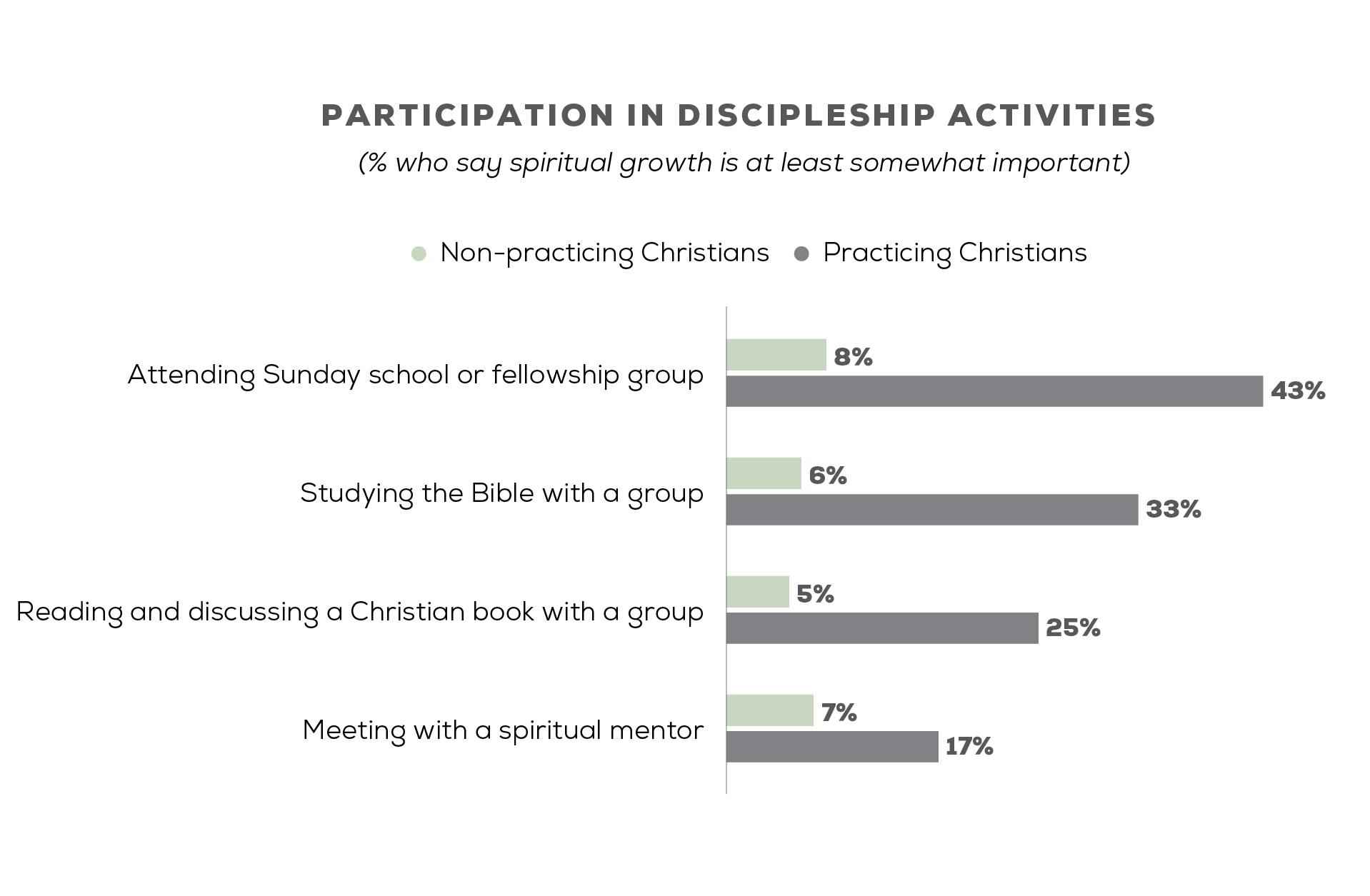Practicing Christians are more likely to be involved in a variety of spiritual growth activities than are non-practicing Christians. (You can read a definition of practicing Christians below.) Yet, even among practicing Christians, fewer than half are engaged in these four types of spiritual development. Only 17 percent say they meet with a spiritual mentor as part of their discipleship efforts.

To Grow or Not to Grow?
It is difficult for researchers to analyze accurately the degree to which people are changing spiritually. From the point of view of self-perception, most people perceive they are growing and say they want to develop spiritually. Yet, self-perceptions also show that Christians tend to be quite satisfied in their spirituality, perhaps edging toward complacency. Most Christians express satisfaction with their spiritual lives: Thirty-eight percent of Christian adults say they are “happy with where they are in their spiritual life” and another 36 percent are “almost to where they want to be.”
Some good news is that people firmly assert that they want to grow spiritually. This is not the case in other contexts, and represents a continued bright spot within U.S. spirituality. Indeed, three-quarters of practicing Christians (77%) believe it is “very important to see growth in their spiritual life.” Even among non-practicing Christians—people who rarely or ever attend church and who are mostly inactive spiritually—37 percent say it is very important to grow spiritually.
Yet, the research reveals little correlation between activity and perceived growth, further revealing the disconnect between how people think about their spirituality and what’s actually happening in their lives. For example, most practicing Christians feel they have made “a lot” (40%) or “some” (51%) progress in their personal spiritual growth in the past year. However, among respondents who are currently involved in at least one discipleship activity, their self-reported growth was not much higher than these levels. Even among non-practicing Christians, a majority believes they have made spiritual progress in the last year.
One of the implications of these findings is that church leaders must be diligent in finding tools that help people examine the reality of their spiritual growth, not merely how they perceive it.
[…] To Grow or Not to Grow? […]